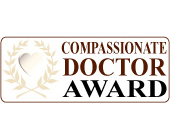Conceiving with egg donation is an option for women who otherwise would not be able to have a baby
Because the eggs used in oocyte donation are usually from young, healthy donors, pregnancy rates are extremely high, exceeding those of all other fertility therapies available. As a rule, only the age of the egg donor is important in the establishment of a pregnancy in donor egg recipients. As long as the recipient’s uterus is capable of carrying a pregnancy (which is typically not age-dependent), she can have children using this fertility option.
The history of egg donation
While many patients and clinicians view the use of donated eggs to assist conception as a new fertility modality, its roots trace back over 100 years – in animals. In fact, in 1890, an English physician first described the placement of a fertilized rabbit egg back to a “recipient” rabbit.
This technique of using donor embryos then extended to the cattle industry, where it was performed routinely, starting in the 1950s. In the late 1960s, the transfer of donor embryos was then extended to monkeys. These animal models taught scientists an important point: pregnancy rates using donor embryos were extremely high, as long as there was appropriate menstrual cycle synchronization between the egg donor and the embryo recipient.
The first successful human egg donation cycle was performed in the United States in 1983.
At that time, the egg was actually fertilized in the donor’s reproductive tract and then washed from her uterus. The recovered early embryo was then transferred transcervically to the recipient. While this first successful donor egg cycle was a landmark achievement, it was far from optimal.
Firstly, recovering the fertilized egg from the donor posed many technical dilemmas, as well as the risk of transmission of infectious diseases.
Secondly, recovery of a single embryo was inefficient compared to the potential of surgically removing the donor eggs and fertilizing those eggs in vitro. In that same year, the first donor egg pregnancy was achieved after the laparoscopic removal of a donor’s eggs, fertilization of those eggs in vitro, and subsequent intrauterine embryo transfer.
Since that time, tremendous strides have been made in the arena of egg donation, resulting in exceptional pregnancy rates, extremely low miscarriage rates, and thousands of live births to couples that otherwise would have been unable to conceive and bear children.
Why should I use an egg donor to conceive?
Using an egg donor is an appropriate treatment for many women. Patients who may consider using donor eggs include:
- Women who are unable to bear children because they no longer produce eggs, either because of natural menopause or because of premature ovarian failure.
- Women who produce eggs monthly, but whose eggs are not robust enough to be fertilized and lead to a pregnancy.
- Women who are carriers of genetic diseases and choose not to become pregnant with their own eggs (since they would be at risk for having a child affected with that disease).
- Women who have undergone multiple cycles of fertility therapies using their own eggs without success.
- Women who have undergone medical or surgical treatments (chemotherapy, radiation, or surgical removal of their ovaries) that have rendered them unable to conceive using their own eggs.
Fortunately, women with and without functional ovaries are candidates for using donor eggs, depending on their individual situations. If you’d like more information on how this option could work for you, or if you want to get started as an egg donor, please contact us.
Award Winning Fertility Clinic
 |
 |
 |
 |

